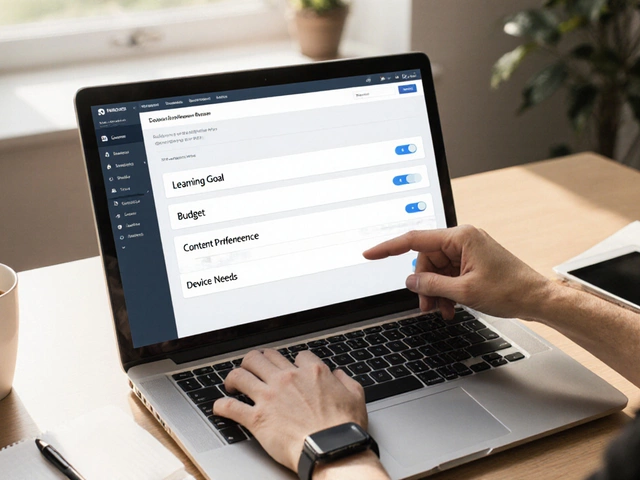
You’d be surprised how many people think local government is all about paperwork. Sure, there’s admin, but there’s way more beneath the surface—jobs from city planners and clerks to IT, finance, HR, or even oddball stuff like dog warden. (My dog Max would definitely have opinions on that one.) The trick is, local government jobs are everywhere, not just at city hall. Libraries, parks, community centers, housing departments, even public works—these all count.
Don’t get hung up on needing ‘connections’ or a fancy degree from day one. Lots of folks start in support roles—think receptionist, maintenance, or data entry—and work their way up. If you can stay organized and talk to people respectfully, you already check off more boxes than you might think. Local governments want doers, not just paper shufflers. Later, you can move into more specialized roles as you find what actually interests you.
- Breaking Down Local Government Roles
- Where the Jobs Are: Entry Points That Work
- What You Really Need: Skills & Qualifications
- Exploring Paths Without Connections
- Making Your Application Stand Out
- Tips from Insiders for Faster Progress
Breaking Down Local Government Roles
If you really want to get into local government jobs, it helps to know the main types of roles on offer. There’s a surprising mix, and it’s not just people in suits running meetings. For example, in 2024, local councils in the UK reported having over 800 different job titles across all regions. In the US, local government employs almost 14 million people—that's police, teachers, city inspectors, animal control, and way more.
Here’s a quick breakdown of some of the main departments you’ll find in most city or county governments:
- Admin & Clerical: Handles records, payments, answering questions from the public. Typical job titles: Administrative Assistant, Clerk, Front Desk, Customer Service Rep.
- Public Works: Keeps your streets clear, fixes potholes, manages rubbish and recycling. Think: Maintenance Worker, Engineer, Project Coordinator.
- Parks & Recreation: Runs community events, youth sports, public pools, or park maintenance. Jobs include Event Organizers, Lifeguards, Landscapers.
- Planning & Building: Focuses on construction permits, inspections, city planning. Common jobs: Planner, Building Inspector, Code Enforcement.
- Libraries & Community Services: From Library Assistant to Social Worker, these folks help people directly with library services, support programs, or senior help.
- Finance & IT: You’ll find the number crunchers, payroll, and all the tech geeks keeping systems running. Titles: Accountant, Budget Analyst, IT Technician.
On top of that, bigger towns or cities will have roles with the police department, fire services, and health and housing too. You don’t need to be a specialist to start—lots of roles offer on-the-job training to help you move up. In fact, over 60% of entry-level jobs in local government lead to internal promotions within three years according to a 2023 Public Sector HR report.
| Department | Common Entry Roles | Typical Starting Pay (US/UK) |
|---|---|---|
| Admin & Clerical | Receptionist, Clerk | $32K-$38K / £19K-£24K |
| Parks & Recreation | Park Worker, Activity Leader | $30K-$37K / £17K-£22K |
| Public Works | Maintenance, Street Crew | $35K-$42K / £21K-£26K |
| Library | Library Assistant | $29K-$34K / £18K-£23K |
| Finance & IT | Finance Clerk, IT Tech | $40K-$48K / £23K-£29K |
Want to hear how city managers see it? Check out this quote from the International City/County Management Association:
“Local government is where you see the direct impact of your work every single day. Nearly every public service that affects communities—clean water, safe streets, parks—comes from the local level.”
So, when you’re thinking about starting your career, the variety really means you can find your fit—whether you’re a numbers person, a people person, or like to work outdoors (good for anyone who’d rather avoid staring at spreadsheets all day).
Where the Jobs Are: Entry Points That Work
Local government offers an almost ridiculous variety of starting points. If you don’t have years of experience, no stress—some of the easiest ways in don’t require more than a high school diploma or basic computer chops. The biggest job areas usually include administration, customer service, maintenance, and support staff. These jobs are always needed, so openings pop up often.
Let’s get specific. Top entry-level roles:
- Administration Assistant: You’ll handle mail, schedule meetings, answer phones, and organize documents. It’s a classic foot-in-the-door spot.
- Customer Service Rep: Community centers, permit offices, and housing departments need patient, friendly helpers to answer questions and process requests.
- Maintenance or Grounds Staff: If you like hands-on work, every parks, roads, or buildings department hires people to keep things running smoothly.
- Library Assistant: Great if you like order, helping people, and books. Computer skills help here.
- Data Entry or Clerk: If you can focus and type, you’ll find openings updating records, licenses, or billing info.
Don’t forget about internships and temp roles. Cities run programs to attract younger talent or career-switchers. These can be short-term, but they’re gold for your resume—and often turn into full-time gigs if you show a good attitude and reliability.
The best places to look for these local government jobs are official city or county websites, state job boards, and dedicated public sector job boards—like GovernmentJobs.com or your country’s civil service site. Don't rely just on Indeed or LinkedIn. City career pages almost always post jobs first, and some don’t even advertise anywhere else.
If you’re totally new and worried about competing with folks who have family working in government, know this: a lot of jobs have strict, fair hiring rules—they have to interview a range of candidates, so your application really does get a look. Check the job ads for clear application instructions and follow them to the letter; one missed form and your name never makes it to a human. It sounds obvious, but you’d be shocked how many people miss out because of this.
What You Really Need: Skills & Qualifications
Alright, so what do local government jobs actually ask for? It’s not rocket science, but there’s more to it than just showing up with a half-decent CV. Most entry-level roles focus on practical skills over fancy degrees. That means if you’re a good communicator, reliable, and know your way around Microsoft Word or Excel, you’re off to a solid start.
The basics are usually:
- Clear communication (written and face-to-face)
- Organization—keeping track of deadlines and files without drama
- Problem-solving and using your common sense
- Customer service—being patient and respectful with the public
- Confidentiality, since you could be handling people’s private info
- Basic tech know-how: emails, spreadsheets, online forms
Now, some jobs might want specific qualifications. A housing officer may need some property management training. For a finance assistant, employers often look for someone working toward or interested in an AAT qualification. But tons of roles just want GCSEs (or equivalents) in English and Maths. If you want to move up the ladder, certain jobs will push you toward higher-level certificates or degrees—usually paid for or supported by your employer if you stick with them.
Here’s a quick look at the minimum requirements for typical roles:
| Role | Usual Minimum Qualification | Extra Skills Often Wanted |
|---|---|---|
| Admin Assistant | GCSEs (English & Maths) | IT basics, friendly phone manner |
| Customer Service Officer | GCSEs or NVQ Level 2 | Calm under pressure, problem-solver |
| Finance Assistant | GCSEs, AAT (sometimes) | Numbers confidence, spreadsheets |
| Library Assistant | GCSEs | People skills, organizing books |
| Environmental Worker | GCSEs, outdoor skills | Teamwork, stamina |
Here’s a tip: most local councils say that solid ‘core skills’ beat out long lists of degrees. Actual job ads for local government jobs nearly always mention teamwork, reliability, and communication in the must-haves. Also, having some volunteer experience—even just helping out at events—can really boost your application. It shows you get how councils work and that you want to help your community, not just collect a paycheck.

Exploring Paths Without Connections
You don’t need an uncle on city council to land your first job in local government. The good news? Most public sector jobs are posted publicly, thanks to strict hiring rules. This levels the playing field. Seriously, over 85% of entry-level local government jobs are advertised on city or county websites. Even the stuff you might overlook, like part-time library assistants or recreation center aides, gets listed for anyone to apply.
Here are smart ways you can break in, no special favors required:
- Check local government websites weekly. Nearly every city, county, and public agency posts their jobs online. Set reminders to look for fresh openings. Some even let you set up job alerts.
- Start with seasonal or temporary roles. Rec departments always need summer help, parks hire grounds crew in spring, and elections need poll workers. Lots of full-timers started this way.
- Volunteer strategically. Even a few hours at a library event, community fair, or park clean-up plugs you into networks and gives you legit experience for your resume.
- Don’t ignore entry-level titles. Jobs with names like "Office Assistant," "Customer Service Rep," or "Public Service Worker" are real foot-in-the-door gigs. Don’t worry if they sound generic—many lead to better pay and responsibility within a year or two.
- Use your local knowledge. If you know your neighborhood like the back of your hand, mention it. Familiarity with community challenges actually gives you an edge, especially for public-facing roles.
Some numbers help put things in perspective. Check out the rough breakdown of typical entry paths:
| Path | Chance of Internal Promotion | Avg. Time to Permanent Role |
|---|---|---|
| Temporary/Seasonal | 30% | 1-2 years |
| Entry-Level Permanent | 45% | 2 years |
| Volunteer to Staff | 15% | 6 months - 1 year |
This shows you aren’t wasting your time starting small. Plenty of folks parlay a seasonal gig or a few hours volunteering into steady government work. The key: keep showing up and be dependable. Someone’s always paying attention—and that’s more powerful than any personal connection.
Making Your Application Stand Out
If you’re tossing your hat into the ring for a local government jobs opening, you’ve got some competition. The good news? Most people submit boring, cookie-cutter resumes that hiring teams skim for barely ten seconds. That’s your moment to be different—without going over the top.
Start with the job posting itself. Local governments love criteria—they list what they want in plain language. So, grab the ad, and check off each requirement in your own words before you even write a draft. Use the same phrases in your resume and cover letter, especially on things like “community engagement” or “attention to detail.” Many governments use software to filter applications, so those keywords get you through the first gate.
- Highlight real results. If you volunteered, managed projects, or solved tricky tasks that relate—even in school or other jobs—put it in. Says a head of HR I know: “Show you improved something, solved a problem, or made things more efficient.” For example: “Streamlined office supply orders, saving $300 per year.”
- Don’t hide soft skills. Customer service, teamwork, and patience (seriously, working with the public can be a test!) are often more important than technical know-how, especially at entry level.
- Follow directions carefully. If the ad asks for a PDF, don’t send a Word doc. If it says a two-page limit, don’t write a novel. Messing this up is a fast track to the rejection pile.
- Add training and certifications. Even short courses on customer service, public administration basics, or computer skills show you’re ready to learn and able to hit the ground running. Mention local government workshops or free courses from sources like Coursera.
- Be honest—but positive. If you’re coming from outside government, say so, but spin any relevant experience. Something like, “While new to municipal roles, I have experience handling budgets and working in a public-facing job.”
At the interview stage, practice with a friend or record your answers. Get used to quick math (budgets, attendance numbers) and explaining how you’d solve common problems (“What would you do if a citizen was frustrated at the front desk?”). Local government panels want someone who’s steady, practical, and pays attention to detail, not someone who “wings it.”
Last tip? Ask good questions at the end. Stuff like “What’s a typical day for this role?” and “How do teams work together here?” shows you actually care about the job, not just the paycheck.
Tips from Insiders for Faster Progress
If you want to move up in local government jobs quicker than most, you’ve got to think a step ahead. I asked around (mainly from folks who survived probation and those who got promoted early), and here’s what they all agreed on.
- Learn the hierarchy and who holds real power. It’s not always the person at the top. There’s almost always someone who gets stuff done behind the scenes—a deputy, a department head, or even a long-timer in admin. Figure out who that is.
- Always read the job posting closely. Every local authority uses “essential skills” and “desirable skills” in their job adverts. You need to tick off every essential skill and clearly show it—don’t just mention, but provide evidence and examples.
- Volunteer for extra projects. Picking up things outside your basic role—even the cringey committee stuff or event organizing—gets you noticed faster. In a 2023 UK council survey, 68% of staffers who volunteered for ad-hoc tasks got recommended for internal moves within twelve months.
- Ask for feedback after every interview and task. Most HR departments will give you exact pointers on what made the difference, especially if you just missed out.
- Keep a brag sheet. Jot down results: money you saved, problems you fixed, positive feedback from the public or colleagues. It’s gold when writing applications or prepping for a performance review.
Here’s a simple table showing what insiders say helps your chances for promotion within two years:
| Insider Tip | Chance of Promotion (in 2 Years) |
|---|---|
| Volunteering for extra duties | 68% |
| Completing short courses or certifications | 61% |
| Networking with staff across departments | 57% |
| Regularly seeking feedback | 40% |
Treat your first year like a stepping stone. Follow up on every job posting, use your time to build connections, and learn systems nobody else bothers with (like council budget software or public feedback tools). That’s what folks who move fastest have in common—they spot problems and fix them before anyone else even notices.



